Intro (skip)
What's the difference between this article and 80k's article?
- 80,000 hours' software career guide is written as an overview of software engineering as a career path.
- This is about HOW to have impact as a software engineer
The 2 main things that determine your impact are..
- Working on an important problem
- Using a good approach to that problem
A relatively easy way to get “full points” on these is to pick your favorite top cause, and work at an EA (or an EA vetted) org that is working on that cause.
Most of the article will discuss how to get to that situation.
Other good paths also exist; I want to mention one of them:
Entrepreneurship
It could be a great path (1, 2, 3) but it’s out of scope for this post.
Is working directly more impactful than earning to give?
See this post.
Can Software Developers Do Harm?
Yeah eh please don’t destroy the world or anything thank you!
Some ideas on how to check if your current workplace might do harm:
- Best: Ask 80k, or post a question in the Forum
- Nice: Ask your boss if they think your work might advance the world’s ML capabilities.
- “yes”: Worry.
- “What? No, we’re building video games”: You’re probably fine.
- “What? No, we’re building video games for the My Little Pony brand”: Eh, worry again?
- Nice: Ask your boss if they think your product is doing harm
- “No! I know that everyone thinks so but it’s not true! My reasons almost never convince anyone who is not getting a paycheck from the company, but it doesn’t matter!”: Mmm.. maybe worry?
If you want to get value from this post for your own career (and not just as interesting reading)
I recommend you focus on the question "what exactly does this post recommend I personally do" (for example: "apply to X") plus maybe "what is the worst thing about that suggestion for me" (for example: "I don't know if X will accept me")
</intro>
How to have a lot of impact? 3 plans
The rest of the post is split into plans, and the intent is that you try the top plans first, and if they don’t work, go to the next plans.
- Plan A: Apply to EA aligned orgs
- Plan B: Work in the industry: build skills and make money
- Plan C: Learn programming, write a CV, and get your first job
Also see: Preparing for an AI Safety job at Anthropic or Redwood.
Why split up the plans?
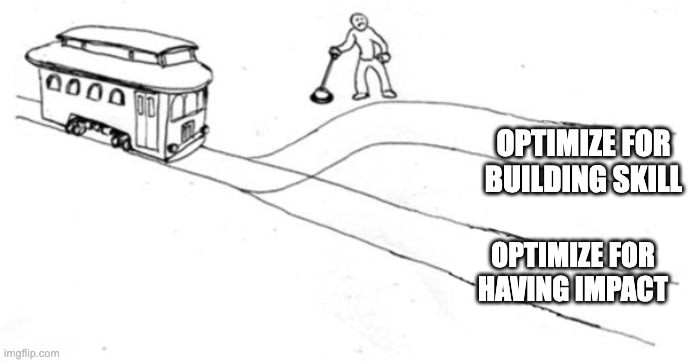
My prior is that most people will have the vast majority of their impact late in their career. If this is true for you: Probably optimize the beginning of your career on building skill, so that you'll reach the "late" part earlier or better equipped to help with whatever comes up.
Consider if this is the right path for you. I think it is for most people.
How to know when it's time to move to having direct impact (assuming that's your plan) ?
TL;DR: Consider applying to direct-work jobs every 6-12 months. When you're accepted, it's time to move. Beforehand, build skill, make money, and have fun.
Plan A: Apply to EA aligned orgs
Here are some very common questions:
Q: Which org? There are lots of options and I’m not sure which are the best / which would accept me
A: Orgs from the 80,000 hour job board
Here. [Edit: I lost some trust in the default 80k job board following this, but they replied to the post and might have fixed that problem.]
The link above filters for:
- "software engineering" (consider changing this if it's not what you're looking for)
- "top recommended orgs", which means 80k thinks the org is impactful (and not, for example, just for building career capital)
A: Apply first, filter later
It’s a common mistake for EA devs to first filter the list of orgs for a long time, and only then apply, without knowing if those orgs will accept them. I recommend first applying, and then filtering based on where you are accepted.
A: Apply to your top choices first
If there are a few orgs that are so good that you’re not sure which one you’d choose if you were accepted even after thinking about it for 2 minutes (not 2 weeks!) : Start by applying to all of those. If they don’t accept you, go to your next choices.
[This is only true for Plan A. I had people try taking this "Plan A" advice even though this wasn't their stage of the career, which I consider a mistake]
Q: Am I wasting the org’s time if I apply even though I am [not qualified / applying to other places]
NO!
This is a big problem in the EA dev community: Many devs don’t apply because they are worried about wasting the org’s time, please be part of the solution!
You can, however, be transparent about the situation, for example:
- “Hey, I’m applying even though I have less years of experience than your job ad requires. I’m writing this because I don’t want to waste your time, feel free to not interview me if you don’t want to”
- “Hey, FYI I’m applying to a few other EA orgs as well, so it could be that I’ll end up going to one of those. Would you like to interview me anyway?”
I said both these things myself.
Q: If I don’t pass, when can I reapply?
This will often be written in the job ad, and will often be “you can reapply immediately”.
If it’s not written, you can ask (or get me to ask, if you prefer).
For example: “Hey, I’m considering applying, but I’m worried that I’m not ready for the interview. Do you prefer that I take time to study for the interview, or that I apply immediately and study only if I don’t pass?”
I said this myself too.
Q: Can’t EA orgs hire the next best person?
Probably not. There is a strange problem where EA Devs don’t apply because everyone expects that the next-best person is amazing or something like that. Be part of the solution!
Q: I’d apply, but [They’re not remote / the salary is too low / I don’t know how I’d feel working in a small team / …]
This is a blind spot for many orgs.
Consider telling them. I’m trying to aggregate this information myself, if you’d rather tell me.
Q: I’d apply, but I have a very specialized skillset / I’d apply, but I don’t have the specialized skillset
A common problem in EA is that each developer has a specialized skillset (like blockchain) and assumes that someone else would be better (like a django+react developer), and this ends up with lots of people not applying at all.
Please be part of the solution!
Plan B: Work in the industry, build skills and make money
Who is this plan for: People who can probably get accepted to dozens/hundreds of companies. It's almost always meant for people who already had at least one full time paid "real" job, or people who have something else which makes them very "hirable". Most of the plan is around "how to pick a good company out of all the options". So, if that's you:
Q: Which skills?
Skills if you want to work at a specific EA org:
- Best plan: Check or ask if they have suggestions on what to learn in order to get accepted to work with them.
- Next best: Do something similar to what they do. For example, if you want to work on the EA Forum at CEA, try doing something similar, not something like optimizing the performance of a database at a huge org.
Skills if you don’t really mind which org:
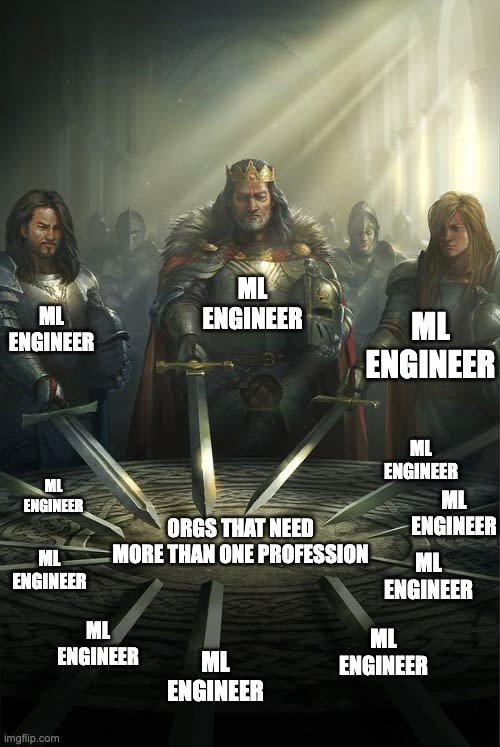
I often hear that people want to leave their profession in favor of "the profession most needed". I hope I can get you to think about what will happen if everyone will go to the one profession that is (perceived as) most needed.
I think most people's impact will be determined only a little by "what is the profession needed", it will be determined much more by "is this person really good at their profession (or only kind-of-okay)".
If you agree, I propose a better solution: Each person gets really good at what they have a high personal fit for, and then when an important org needs a really good professional, they have someone to hire. Check sometimes if there's a role open, but otherwise, probably keep going based on other considerations.
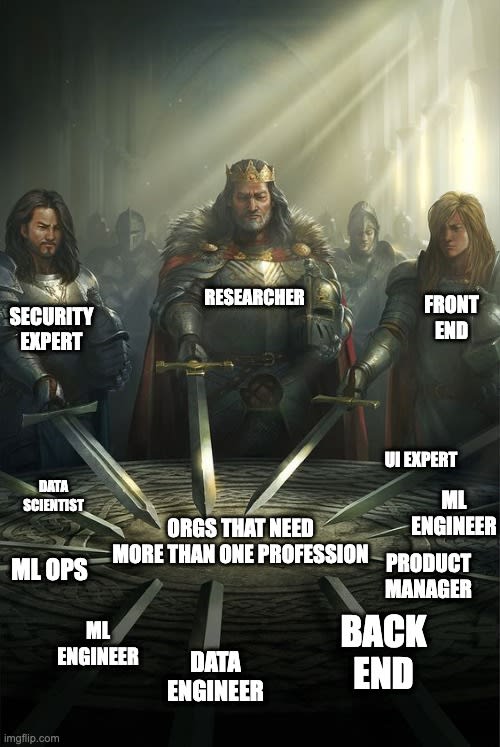
If you actually don't mind what profession you'll get into (some of the people I talk to don't) - then yeah, you can prioritize demand. ML Engineering definitely seems in demand.
Q: Will the skill that you learn have demand in the future or will EA tech needs change?
This question is for: people who are worried they'll learn something that isn't in demand (which I think is mostly a wrong thing to worry about). So:
TL;DR: The skills will probably still be relevant, yes.
I observe that EA tech needs have grown over time, I can imagine them going up even more, and I can’t realistically imagine them going down (assuming EA keeps existing). So my guess is that things that are needed today will also be needed in the future.
Also, my recommendations below will be something like “have an amazing career regardless of EA”, so I don’t expect you to be at risk for “wasting your time learning something useless”. Use your judgment of course, but that is my expectation.
Q: What to learn to get accepted to an AI Safety Engineering job?
I recently spoke to hiring managers at Anthropic and Redwood Research. They both really want to hire strong developers, even if the developers have zero ML experience and no AI Safety research background.
Q: What do Redwood & Anthropic ask?
A significant part of the interviews in both companies are “build a small program in 1 hour”. These are not leetcode questions (for example, they don’t focus on the solution’s complexity), but if you’re good at solving leetcode questions quickly, and writing code quickly in general, then you’ll probably do well in those interviews.
Anthropic said this is similar to what they ask.
Q: How to prepare for Redwood & Anthropic?
Here are some ideas they suggested:
- Have a lot of responsibility in a small startup, where you have to do a bit of everything, including devops and product. You don’t have to be an expert at anything, but being able to see the big picture is useful.
- Work with very strong engineers that give you really good mentorship, like at FAANG or a quant trading firm.
- Practice debugging distributed systems. Even a “map reduce” algorithm is a start.
I personally think that practicing writing tiny programs that actually do something in 1 hour would be useful. For example:
- A game like snake or so (that kind of mostly works)
- Leet code problems. Specifically if they require writing a lot of code, as opposed to being complicated mathematically.
Adding: Ought
They're hiring a Fullstack Developer and, separately, a ML Engineer
How to build skills quickly #1: Get mentoring and feedback
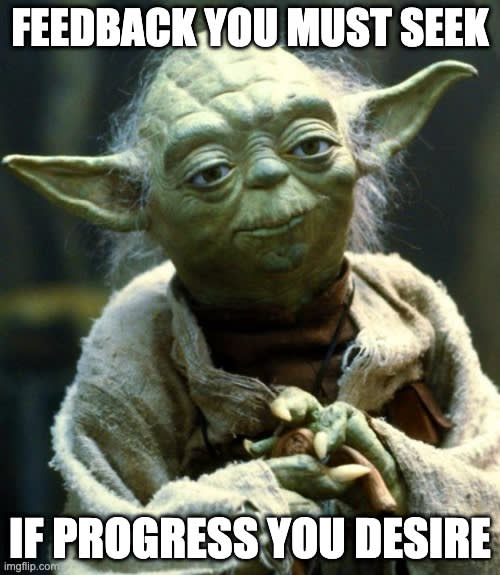
Ask about mentoring before applying
TL;DR: When applying, ask “will I have 1 hour every week where I can ask a senior developer questions and get feedback to help me improve?”
This will filter out lots of jobs, such as jobs where you are the only developer.
Also, some places may say they have much more than that: "Just one hour? What? We'll do much more!".
Common mistake: Asking something very subjective
For example: “will I learn a lot?” or “will you help me improve?”.
Almost all hiring managers would reply with “yeah of course!” to those.
Bonus: Try understanding how good your future colleagues are
I don’t think I can explain how to do this, but it’s probably worth trying.
Bad idea: Believe the hiring manager when they say “we only have the best people!” (Fun fact: I used to totally believe these claims myself).
Other common questions about mentoring
These questions are out of scope for the post, but I’ll at least mention them as having solutions:
- Q: How to get the most out of my mentor? What to ask them?
- Q: Am I wasting their time? Am I asking them too many questions?
Feel free to contact me about these.
How to build skills quickly #2: Variety
Here’s my made-up chart who’s point is “the learning curve is steeper at the beginning, when we’re learning something new”:
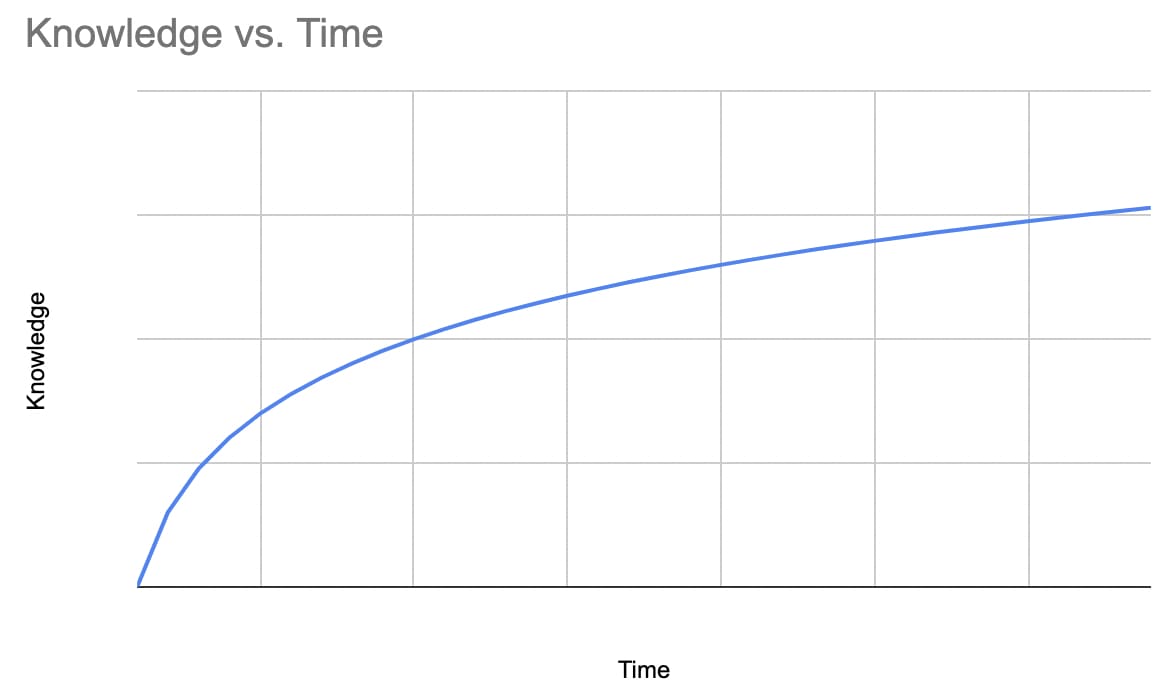
When we do something that we already know how to do, we often learn less quickly.
Magic solution: Go do something new.
Q: Isn’t it good to become an expert?
Yes. But this isn’t the common situation.
“There is a difference between getting 5 years of experience and getting 1 year of experience 5 times”.
For example: If you already know how to build a django backend and you’re building more functions that you mostly already know how to do - then this is not “becoming an expert” and maybe it’s time to switch jobs.
Alternative framing: “Do something hard”
Or, “don’t do something easy” or “don’t do something you already know how to do”, if a main goal of yours is to build skill.
It’s probably better to apply to jobs that are “over your league” or in a domain you don't yet know so that you'll end up doing things you don't know how to do.
Common mistake: Apply to whatever you already know how to do because that’s where you have the highest chance to get hired
Much better: Apply to the places that you most want to work at, and if you’re not accepted, then consider applying to places you have more chances of getting accepted to. You don’t need to apply to a field where 1000 companies are willing to hire you, you only need 1 company, give or take.
How to build skills quickly #3: Do something that you like
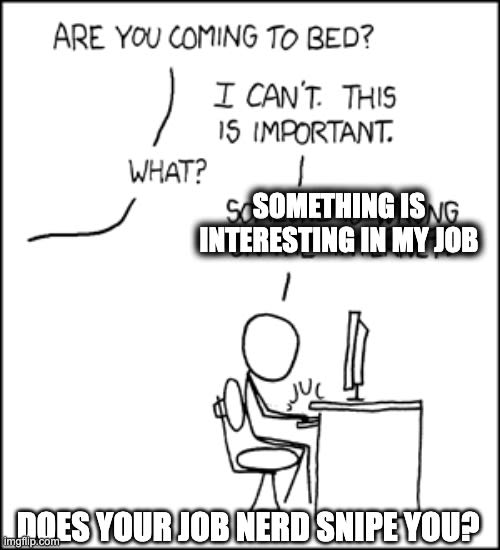
It is a neglected area in EA, to find an enjoyable job, even though it has such a large effect on skill down the line.
Q: Switching jobs: Will anyone accept me? / I worked here for so little time, would anyone want to hire me now?
Consider trying: apply first, without quitting your current job, and see if you’re accepted. Or even cheaper: Send your CV and see if anyone invites you to an interview.
Q: Switching jobs: I need income stability
Yeah I endorse income stability. In most situations I recommend first finding a new job and only then quitting.
Common mistake: Staying in a job that is bad for you
It is common for me to hear people staying in a job with a bad boss, or not enough learning, or something else that is a really bad fit, but they stay because of one of the reasons above, sometimes the option of leaving is almost unthinkable (“quitting after less than a year??”).
I am not saying all cases are like this. Sometimes problems can be solved, sometimes there are other relevant circumstances, but it seems to be useful to people when I share my prior, so here it is.
Questions about the interview process
These questions are out of scope for the article, but I want to put them here for you to know that these are common questions, often with “textbook” answers, it’s not just you, and I invite you to talk to me about them.
- Q: Interviewing is not fun! A: There are things to do about that!
- Q: How much money to ask for? / How to negotiate for salary?
- Q: How to optimize a job search? I want a better job next time! I had 3 bad jobs already, I don't want that to happen again!
- Q: Should I learn lots of [leetcode / best practices / architecture / …] ?
- Q: How to improve my CV? A: This very reliably improves CVs
- Q: Should I polish my [blog / side project / article] before applying?
- Impostor syndrome!
Plan C: Learn programming, write a CV, and get your first job
See this post.
Thank you
If you write a post on one of the topics I mentioned as out of scope, let me know and I’ll link to you

Distributed computing seems to be a skill in high demand among AI safety organizations. Does anyone have recommendations for resources to learn about it? Would it look like using the PyTorch Distributed package or something like a microservices architecture?
To answer your question: My best idea is working on a production distributed product that has bugs around that and debug them, and/or set up a system like that, perhaps with k8s.
This answer is pretty bad, all these ideas are very hard and will take a long time to implement.
My prior is that you might have a bottle neck which is easier to tackle than this one. Wanna share what your goal is, where you stand, and what you're planning to do?
I have a better answer:
Is your bottle neck distributed computing and except for that you can get [the AI Safety job you spoke about] tomorrow? Did you interview with such a company to make sure this is all you have missing?
If not - I'd probably focus on other skills, mainly because distributed computing (1) is not a must, and (2) is pretty hard to learn, compared to other skills, many of which are more important, at least given the ideas I have on how to learn it.
See also the section on preparing for AI Safety jobs if you didn't see it already
This is super relevant for me at this exact moment. Thanks for writing it!
Is it possible to get good at ML without advancing ML?
[I'm not an expert in AGI Safety, feel extra free to disagree]
I think using existing AI capabilities is fine, for example:
I think creating new AI capabilities is problematic, for example:
And of course you can learn ML though MLAB (though I hear they're overflowing right now) or other resources, like AI Safety Support maybe.
I personally didn't get in, presumably for that reason :)
FAQ: How to find a really good software job? (high pay, fun, skill building, and maybe optimizing for something else too)
This continues Plan B.
Things I will not answer in this comment:
My secret answer
If you'd be searching for a job and you'd sit with me as a friend and ask me "hey, you spoke to over 100 developers and saw some of how their job search went, what's the secret element?", then I would answer you, as a friend, that I can guess how well a certain job search will go according to a single KPI: "How many jobs does the person apply to". I'd quickly add "I know it's annoying to apply to lots of jobs, please don't run away", and if our conversation would be one of those conversations-that-go-well, then we would speak about all the bad things about applying to lots of jobs and find solutions to them, or work around them, or something.
If, alternatively, you'd say "oh interesting sounds right" and not give me any of the many pushbacks you're experiencing, then I'd know this is one of those conversations that goes badly, and I'd try to think what I could do differently next time. Maybe I can go meta.
How does applying to lots of places help salary?
How does applying to lots of places help building skill?
You can check* how much mentorship (or other relevant skill building properties) many work places have, and pick the best (or one of the best). It's hard to know how good this metric is without talking to the hiring manager.
How does applying to lots of places help [some other unusual property I'm looking for]?
For almost everyone who asks me this, the unusual-property is something that is easier to find out when talking to the hiring manager.
Yeah, but applying to lots of jobs is stressful / time-consuming / my-employer-will-know / how-can-I-know-the-next-job-will-be-perfect / what-if-I-am-rejected
If your response is something like that, please let me know. It's easier for me to write things if I know it's helping someone specific
This post is getting better and better! Thanks so much for it!
FAQ: I can't get into [the most impactful job/s that I'm aiming for] and this frustrates me
A:
1. How I see a typical EA software career is (inspired by 80k and I agree), vaguely split into 2:
In the first "half", gain skill.
In the second "half", have direct impact.
The subtext is: Most of your impact will come from the second "half".
2. If you agree, then - in the first half I wouldn't optimize for as-high-impact-as-possible, I'd optimize for building skill, and I'd assume that building skill is the most effective way to have long-term-impact (by reaching the second "half" early). If that seems true for you, see Plan B. Building skill, having fun, and making money - can often go together in software, and I think this is what many people should aim for.
3. When to move to work directly?
It's hard for most of us to estimate our own skill, so what I recommend is "apply to high impact jobs sometimes (every 6/12 months?)". See if you're accepted. If you are, it's time for Plan A. If not, keep having fun with Plan B. The point of applying isn't "getting accepted", it's more about "having the habit of applying sometimes so you don't 'waste' years of having direct impact by building skill that you already have" (this is a common mistake EA devs make, and this habit-of-applying-sometimes is my current best idea for how to solve it).
Part of the reason I think this is a good idea: If you know you're not "missing your chance" of doing something really high impact (because you're applying sometimes) - then I think it's easier to go "all in" to a job that is focused on skill building (and fun and probably money).
"Applying" dozens of jobs in less than an hour (combined!)
TL;DR: Post in social media that you're looking for a job.
What I'd write:
This trick doesn't work for everyone, but it seems super cost effective if it does fit your situation
Thanks for sharing your considerations! I love the approach. Is there a collection/overview of case studies of Software Developers, who had a lot of impact e.g., by community building, transitioning to AI safety, doing earning to give. I imagine that might be quite helpful for software developers, who are thinking about how to optimize their impact
I don't have such a collection myself.
May I ask how this might be helpful for software developers who are thinking about how to optimize their impact?
I also want to guess that most stories are "they applied to an EA aligned job", which is something I'm a pretty strong advocate of
I only have anecdotal/weak evidence, but I know that some members of the Effective Altruism and Consulting Network felt encouraged to apply for roles at Open Phil after learning that they already hired several consultants